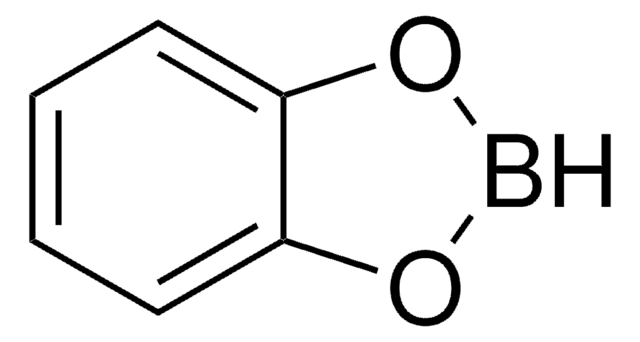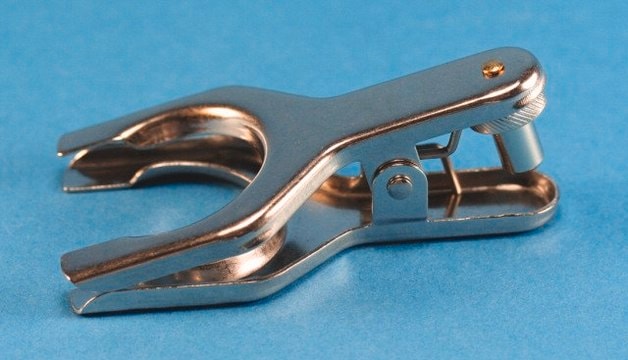188913
Catecholborane
98%
Synonym(s):
Catecholatoborane, Catecholborane (CB), Pyrocatecholborane
About This Item
Recommended Products
Assay
98%
form
liquid
reaction suitability
reagent type: reductant
refractive index
n20/D 1.507 (lit.)
bp
50 °C/50 mmHg (lit.)
mp
12 °C (lit.)
density
1.125 g/mL at 25 °C (lit.)
storage temp.
2-8°C
SMILES string
[bH]1oc2ccccc2o1
InChI
1S/C6H5BO2/c1-2-4-6-5(3-1)8-7-9-6/h1-4,7H
InChI key
CENMEJUYOOMFFZ-UHFFFAOYSA-N
Related Categories
Application
Legal Information
Signal Word
Danger
Hazard Statements
Precautionary Statements
Hazard Classifications
Eye Dam. 1 - Flam. Liq. 2 - Skin Corr. 1B
Supplementary Hazards
Storage Class Code
3 - Flammable liquids
WGK
WGK 3
Flash Point(F)
35.6 °F - closed cup
Flash Point(C)
2 °C - closed cup
Personal Protective Equipment
Certificates of Analysis (COA)
Search for Certificates of Analysis (COA) by entering the products Lot/Batch Number. Lot and Batch Numbers can be found on a product’s label following the words ‘Lot’ or ‘Batch’.
Already Own This Product?
Find documentation for the products that you have recently purchased in the Document Library.
Customers Also Viewed
Articles
Arylboronic acids and esters, vital tools in chemical transformations, find extensive use, particularly in the Suzuki-Miyaura cross-coupling reaction.
Our team of scientists has experience in all areas of research including Life Science, Material Science, Chemical Synthesis, Chromatography, Analytical and many others.
Contact Technical Service

![9-Borabicyclo[3.3.1]nonane solution 0.5 M in THF](/deepweb/assets/sigmaaldrich/product/structures/180/891/8b64e597-269d-4780-98b6-40889dfd06b9/640/8b64e597-269d-4780-98b6-40889dfd06b9.png)










